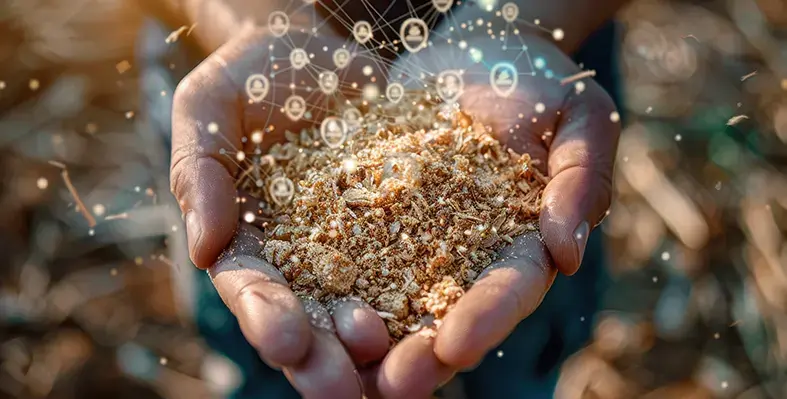Young African agripreneurs are leading the way in using artificial intelligence (AI) to tackle food security issues and modernise agrifood systems across the continent.
In a recent X Spaces live event hosted by the Food and Agriculture Organization (FAO) Regional Office for Africa, three tech-savvy innovators from Zimbabwe, Nigeria, and Kenya shared how they are applying AI to help smallholder farmers increase productivity and build resilience.
The one-hour digital conversation drew nearly 200 participants and shed light on the power of youth-driven innovation in agriculture. The event formed part of FAO’s “Youth on the Frontier of Agrifood Systems” series, which aims to amplify the voices and efforts of young leaders in shaping Africa’s food future.
Among the featured entrepreneurs was Tafadzwa Chikwereti from Zimbabwe, the founder of eAgro. His company developed CropFix, a mobile AI platform that diagnoses pests, diseases, and nutrient issues using photos taken by farmers. Speaking during the session, he stressed the importance of accessibility: “The biggest challenge is rural connectivity and digital literacy. Bundling AI tools with accessible platforms is crucial for improving harvests.” He added, “We deliver these insights using platforms including SMS text messages, which are crucial for smallholder farmers without internet or smartphones.”
From Nigeria, Femi Adekoya—known as the “Flying Farmer”—spoke about how he’s combining drones and AI at Integrated Aerial Precision to advance precision agriculture. He explained: “It means applying the right thing at the right time in the right place with the right intensity. That is sustainable agriculture.” Adekoya also trains young people through the Precision Field Academy and collaborates with universities across Nigeria. “We believe African youth can be equipped with the knowledge and skills to lead this work,” he said.
Kenyan agripreneur Lavender Birike, founder of Klima360, highlighted how her platform blends climate, soil, and market data using AI to forecast risks and help both farmers and insurers make better decisions. She called for improved access to open data: “We have a lot of research data sitting in different places. If we could pass policies that enable access and provide safety frameworks, it would open opportunities for young people to develop localised solutions.” She also spoke on gender inclusion in tech: “This is an opportunity for women to be involved from the beginning.”
FAO Digital Agriculture specialist Ken Lohento closed the event by stressing that collaboration between governments, academia, private sectors, and local communities is essential to scale these innovations. He pointed to FAO initiatives like the Fostering Digital Villages (FDiVi) project as examples of how rural areas can benefit from digital and AI technologies.





